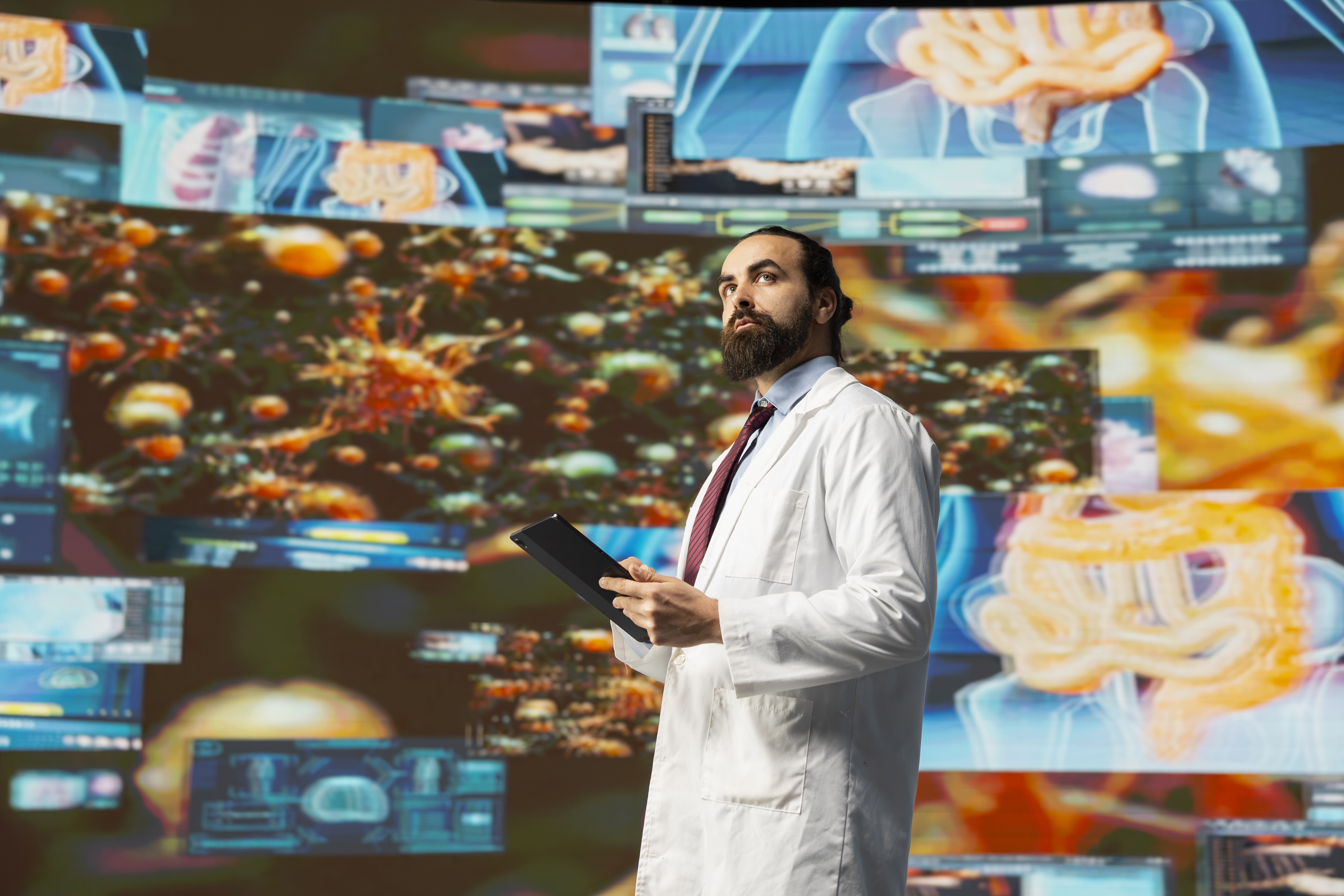There are no items in your cart
Add More
Add More
| Item Details | Price | ||
|---|---|---|---|
Aug 5, 2025
Imagine walking into a clinic and being greeted not by a human, but by a screen. You describe your symptoms, the AI diagnoses you, prescribes medicine, and wishes you a speedy recovery. Sounds futuristic? Well, that future might be closer than you think.
With rapid advancements in artificial intelligence (AI), especially in healthcare, people are starting to wonder: "Will AI replace doctors altogether?" Let's break it down and see if machines truly have what it takes to step into the shoes of human physicians.
Understanding AI in Healthcare
AI in medicine refers to the use of algorithms, data analytics, and intelligent machines to perform tasks traditionally carried out by healthcare professionals — from diagnosis to treatment planning.
Machine Learning (ML)
The engine behind predictive diagnostics. It helps AI systems learn from data patterns and make decisions without being explicitly programmed.
Natural Language Processing (NLP)
This enables machines to understand, interpret, and respond to human language — think of chatbots answering health queries.
Robotics
Used in surgeries with extreme precision. Robotic arms guided by AI can outperform human steadiness.
Computer Vision
AI systems analyzing X-rays, MRIs, and other imaging data faster and often more accurately than the human eye.
AI systems like IBM Watson or Google's DeepMind have shown remarkable ability in diagnosing conditions such as cancer, diabetic retinopathy, and brain tumors — sometimes with higher accuracy than trained radiologists.
AI algorithms can predict potential outbreaks, identify high-risk patients for chronic illnesses, and even suggest preventive actions — all by analyzing health records and lifestyle data.
Robot-assisted surgeries are now common in orthopedics, cardiology, and gynecology. These machines reduce blood loss, minimize recovery time, and improve precision.
Think of Siri or Alexa, but trained in medicine. These AI tools can remind patients about meds, monitor symptoms, and even offer initial consultations.
AI can process genetic data to tailor treatments unique to an individual — something a general doctor can't always do.
AI processes massive datasets in seconds. What takes a doctor hours or days, AI handles instantly.
AI thrives on data. It pulls from thousands of studies, patient records, and real-time info to suggest evidence-backed solutions.
No coffee breaks. No sleep. AI doesn't get tired, offering round-the-clock service.
Misdiagnoses happen. AI helps reduce these errors by offering a second, data-backed opinion.
Machines don't feel. They can't comfort a grieving family, motivate a patient, or understand cultural sensitivity.
Who's liable if an AI makes a mistake? There are still gray areas in medical ethics concerning accountability.
Healthcare data is extremely personal, but AI is fuelled by data. Breaches or misuse can have serious consequences.
If AI is trained on biased data, it will produce biased results — worsening healthcare disparities.
Doctors hold hands, offer hope, and connect with patients emotionally — something no machine can replicate.
Not every case is black and white. Physicians use experience, judgment, and context in tough decisions.
Patients trust doctors who listen and explain. Machines can't build relationships the same way.
Doctors often weigh societal, familial, and emotional factors when making tough calls. AI doesn't.
Rather than replacing doctors, AI is better seen as a tool that enhances their abilities — like a stethoscope or MRI machine.
From automating documentation to scheduling and flagging abnormal results — AI saves time so doctors can focus on care.
AI is great with data. Doctors are great with context. Together, they're a powerful team.
While AI will take over many repetitive and data-heavy tasks, the idea of robots running hospitals solo is still sci-fi.
Tasks like radiology image analysis? Sure. Delivering a cancer diagnosis to a family? Not so much.
Tomorrow's doctors will need to understand AI — maybe even code — as part of their toolkit.
The future is teamwork: AI + doctors + patients = smarter healthcare.
Trust in AI is still growing. For now, most people prefer a doctor who uses AI, not one who's replaced by it.
So, will AI replace doctors? Not likely. Will it change how doctors work? Absolutely. The future of medicine is collaborative — where machines do the number-crunching and humans handle the healing. It's not man vs. machine. It's man and machine.
1. Can AI diagnose diseases better than doctors?
In specific cases like radiology or dermatology, yes. But it still lacks human context and clinical judgment.
2. Will AI make doctors jobless?
Not at all. It will change job roles, not eliminate them. Doctors will spend more time on patient care and less on paperwork.
3. Is it safe to trust AI with surgeries?
Yes — when operated by trained professionals. Robotic surgeries have shown reduced complications and faster recoveries.
4. What areas of medicine will AI dominate?
Diagnostics, radiology, pathology, and admin work are prime areas. Human physicians will still lead in complex, emotional, or ethical cases.
5. How can doctors adapt to AI in their profession?
By learning about AI tools, embracing tech-assisted workflows, and staying updated with digital innovations in healthcare.